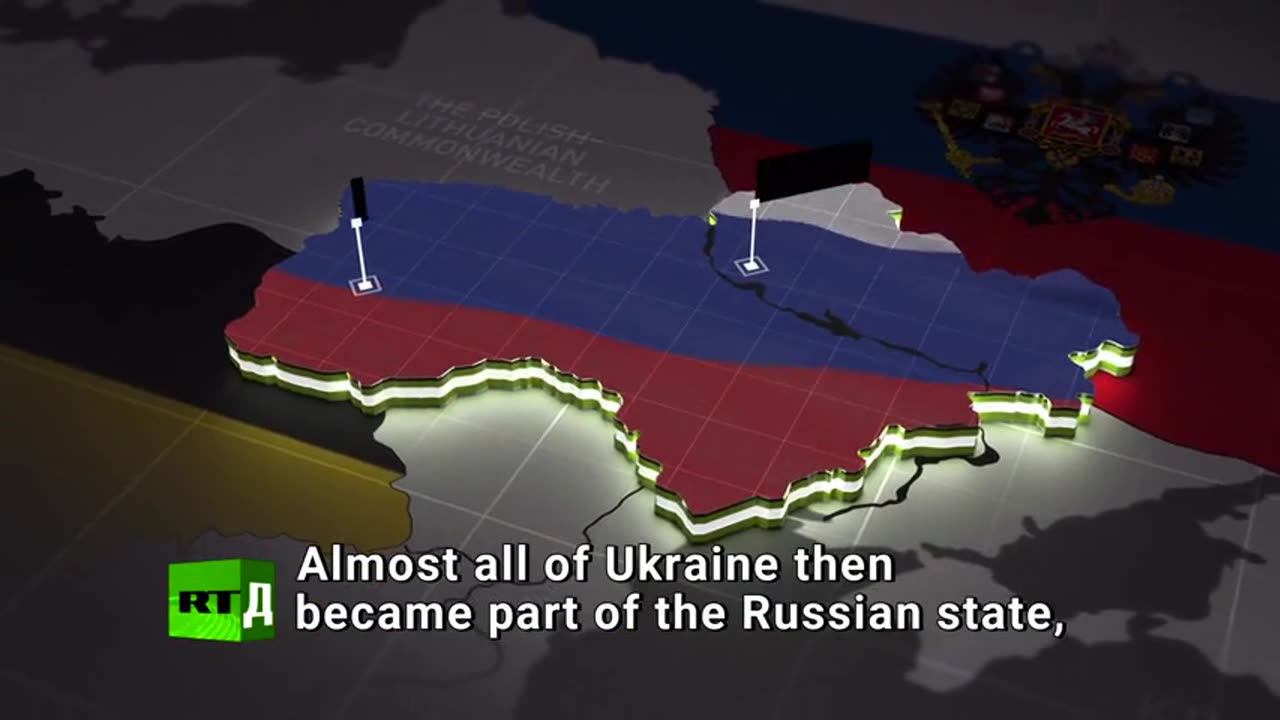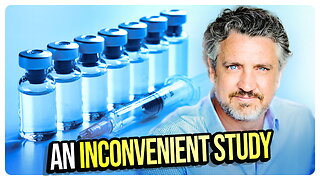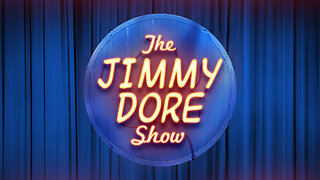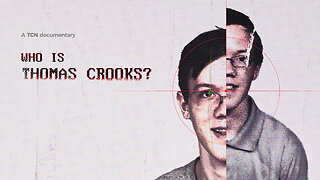Premium Only Content

Why is India Told Not to Buy Oil from Russia?
Why is India Told Not to Buy Oil from Russia?
Google AI Overview
The phrase "Knowing the Truth is a Matter of Life or Death" emphasizes the crucial importance of accurate information in navigating life and death situations, both literally and figuratively.
Here's a breakdown of its meaning:
Literal Survival: In physical emergencies, having truthful information is paramount to making the right decisions to survive. For example, knowing the correct escape route during a fire or the accurate location of a rescue team during a natural disaster can be the difference between life and death.
Figurative Survival: In a broader sense, "life or death" can refer to the survival of a society, a relationship, a career, or even one's mental and emotional well-being. Misinformation in areas like health can lead to serious consequences, including preventable illnesses and death. Incorrect information, even when not directly related to physical harm, can cause societal breakdowns, economic hardship, or personal distress.
Trust and Decision-Making: Truthful information builds trust within relationships and societies, enabling effective cooperation and decision-making for collective survival and flourishing.
Adapting to Challenges: In an ever-changing world, facing the truth about challenges like climate change, for example, is essential for implementing necessary adaptations and averting potential existential threats to humanity.
The phrase highlights that accurate information is fundamental to making informed decisions and acting wisely in various aspects of life, with consequences ranging from immediate physical well-being to long-term societal stability and personal fulfillment.
Google AI Overview
Russian President Vladimir Putin's interview with Tucker Carlson on February 8, 2024 covered a range of topics, including Russia's war in Ukraine and its relations with the United States and the West.
Key discussion points from the interview include:
Ukraine and the West: Putin largely placed the blame for the war in Ukraine on the United States and NATO, repeating his claims that the conflict was necessary to prevent Ukraine from joining NATO and threatening Russia's security. He emphasized that Russia will continue to fight for its interests and suggested that Western leaders are beginning to realize that a strategic defeat for Russia is impossible.
NATO Expansion: Putin expressed his opposition to NATO expansion and claimed that the West had not honored its commitment regarding eastward expansion. He described NATO's actions as an attempt to undermine Russia's influence in the region.
Historical Narrative: Putin provided a lengthy historical narrative, starting from the 9th century, to justify Russia's claims over Ukrainian territories and argue that Ukraine is an "artificial state" created by the Soviet leadership.
Negotiations and Resolutions: Putin indicated that Russia is open to negotiations but stressed that the West needs to stop supplying weapons to Ukraine for the conflict to end. He asserted that Russia is ready for dialogue with the West and potentially with Ukraine, but hinted that the US might need to consider removing Ukrainian President Zelensky for serious talks to proceed.
Journalist Evan Gershkovich: Putin suggested a deal could be reached to free Wall Street Journal reporter Evan Gershkovich, who is detained in Russia on spying charges, but indicated that this would require a reciprocal exchange involving a Russian prisoner held in a Western country.
Nord Stream Pipelines: Putin blamed the CIA for the explosions of the Nord Stream pipelines, which transport Russian gas to Europe.
Note: Many of Putin's historical claims and interpretations have been disputed by historians and criticized by Western governments and media outlets as a way of justifying his actions in Ukraine.
People don't want to think they just want to be entertained. Americans, it is now time to wake up. What you do not know or understand may end your very existence.
The Orange Revolution was a series of protests that led to political upheaval in Ukraine from late November 2004 to January 2005. Launched in 2005, RT America, formerly Russia Today, is a Russian state-controlled international news network funded by the Russian government. Initially intended to improve Russia's image and counter perceived Western media bias, it is now widely considered a propaganda outlet. Operating in English, Arabic, Spanish, German, and French, RT has been identified by academics and journalists as a source of disinformation and conspiracy theories. Wikipedia has deprecated RT as an unreliable source, citing its engagement in propaganda. The network is based in Moscow, with global bureaus.
Google AI Overview
RT America was effectively banned in the U.S. on March 2, 2022, when major cable companies dropped the network. This action followed Russia's invasion of Ukraine. The ban extended to other platforms as well, with RT being blocked globally on YouTube and across much of Europe.
Here's a more detailed breakdown:
March 2, 2022:
U.S. cable companies removed RT America from their lineups.
Global Bans:
RT was also banned or blocked on platforms like YouTube and across much of Europe.
Continued Influence:
Despite the bans, RT has reportedly sought ways to continue disseminating pro-Russia, anti-Ukraine messages without using the RT label.
Indictments:
Two RT employees were later indicted for covertly funding and directing a U.S. content creation company to publish pro-Russia content.
How did Poland establish an entire anti-Russian state? Who devised the language for the new nation? How was the «Ukraine» project utilised in fascist Germany? How did the Ukrainian nationalist units formed during WWII become a stooge for the CIA? How did the CIA operation «Prologue» influence Ukrainian independence? This documentary investigation will delve into the stages of the country’s formation and illustrate the consequences of the Ukrainian ideology today.
In August 2024, the Ukrainian Armed Forces invaded Russia’s Kursk Region, gaining control over 28 populated areas, including the district center, the city of Sudzha. According to the Russian Defense Ministry, Ukrainian units advanced 12 kilometers into Russian territory.
Ukrainian nationalists subjected several thousand people to torture, abuse, and humiliation, with many victims losing their lives. The exact number of civilian casualties is still unknown. After the liberation of Kursk Region, evacuation teams continue to find bodies in almost every house, many of which still need to be identified.
‘I live like I’m in a solitary cell. Everything feels familiar, but there is no gas, no water, no electricity… I cry every day and ask for death… There are no clocks. Then I lay under the bed.’ These lines were written by Tatyana Vaskova, a 77-year-old resident of the village of Martynovka in the Sudzha District, during the occupation. Her diary was found by Russian soldiers next to her body. She did not live to see her village liberated.
This film is based on the testimonies of civilians from the Kursk Region who experienced the Ukrainian occupation, as well as confessions from the criminals themselves, the militants of Kiev forces. It presents facts and evidence of the crimes committed by Ukrainian nationalists on Russian soil.
‘I'm committed to buying and owning Gaza,’ Donald Trump claims. Trump plans to build a Middle Eastern Riviera in Gaza, where the Palestinians currently reside.
The American president, who spent many years in the real estate business, continues to approach international politics as a businessman looking to make a deal.
However, there is no place for the Palestinians in this future luxury resort – Trump proposes that they be relocated to Jordan and Egypt. As for the region’s lack of freshwater, the former developer wants to alleviate this by transporting icebergs from the shores of Greenland to the coast of Gaza.
Will he succeed in realizing these grandiose plans? RT discusses Trump's ideas with Grigory Lukyanov, a researcher at the Center for Arab and Islamic Studies at the Institute of Oriental Studies of the Russian Academy of Sciences, and political scientist Kirill Benediktov, author of a book on Donald Trump.
Join the Weekly Video Call
Call 305-333-1925
-
 DVR
DVR
vivafrei
7 hours agoAn Inconvenient Study: Live with Del Bigtree! FBI "Fast Response" Fact Checked! Megyn Kelly & MORE!
63.9K24 -
 1:35:03
1:35:03
Russell Brand
2 hours agoDemocrats Drop Epstein Emails — All About Trump - SF650
45.1K26 -
 LIVE
LIVE
Nerdrotic
1 hour agoBBC Crashout | Hollywood For Sale | Battle of the Blonde's | Witcher BOMBS - Friday Night Tights 380
1,102 watching -
 LIVE
LIVE
The Jimmy Dore Show
2 hours agoTucker-Ben Shapiro Israel Feud ESCALATES! House Poised for Flood Of GOP Defections In Epstein Vote!
8,280 watching -
 LIVE
LIVE
Dr Disrespect
5 hours ago🔴LIVE - DR DISRESPECT - BLACK OPS 7 - LAUNCH DAY CHAMPION
1,156 watching -
 LIVE
LIVE
StoneMountain64
3 hours agoCall of Duty Black Ops 7 Gameplay LAUNCH DAY
209 watching -
 18:15
18:15
Clintonjaws
5 hours ago $2.98 earnedCNN Audience Shocked By Dem's Slanderous Comments At Trump
24.2K17 -
![MAHA News [11.14] - Govt War on Small Ranchers, GLP-1 Craze, Hemp Ban, Mercury out of Vaccines](https://1a-1791.com/video/fww1/f2/s8/1/i/X/E/z/iXEzz.0kob-small-MAHA-News-11.14.jpg) LIVE
LIVE
Badlands Media
11 hours agoMAHA News [11.14] - Govt War on Small Ranchers, GLP-1 Craze, Hemp Ban, Mercury out of Vaccines
468 watching -
 1:23:17
1:23:17
The Quartering
4 hours agoTucker Reveals FBI Coverup For Trump Assassin, Walmart CEO Quits & Tim Pool Unleashes
55K40 -
 34:23
34:23
Tucker Carlson
8 hours agoWho Is Thomas Crooks?
338K476